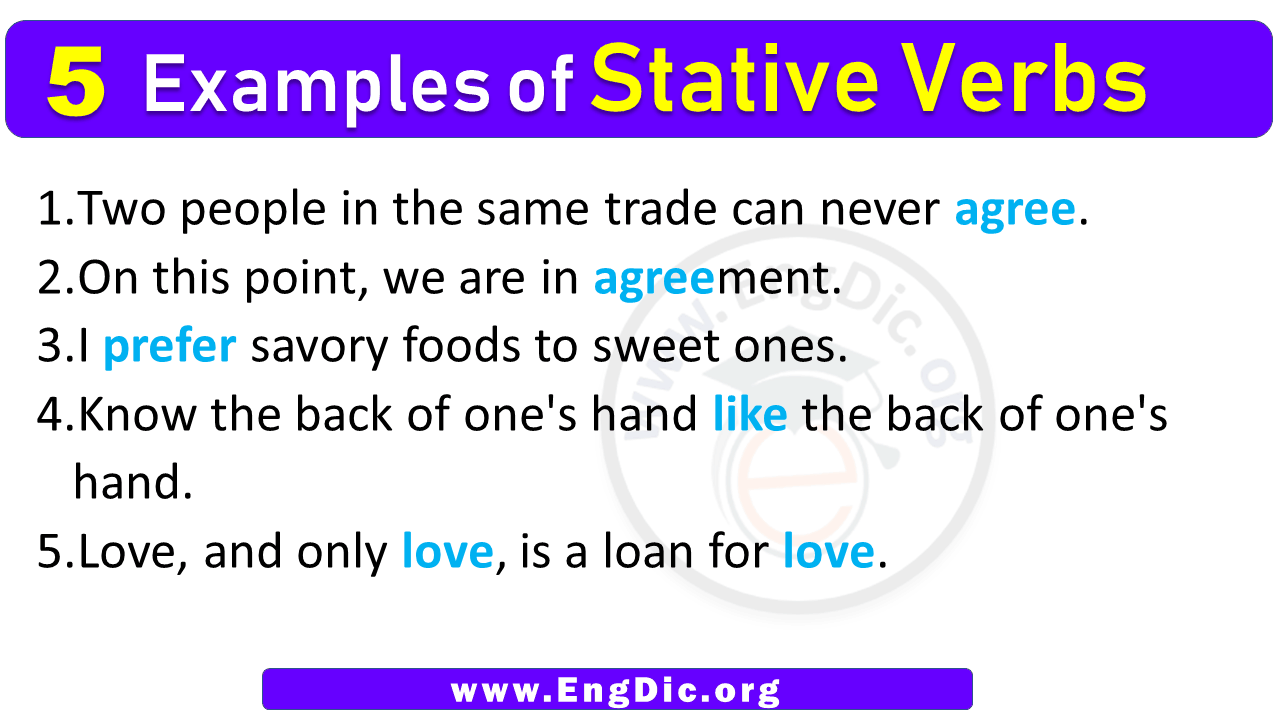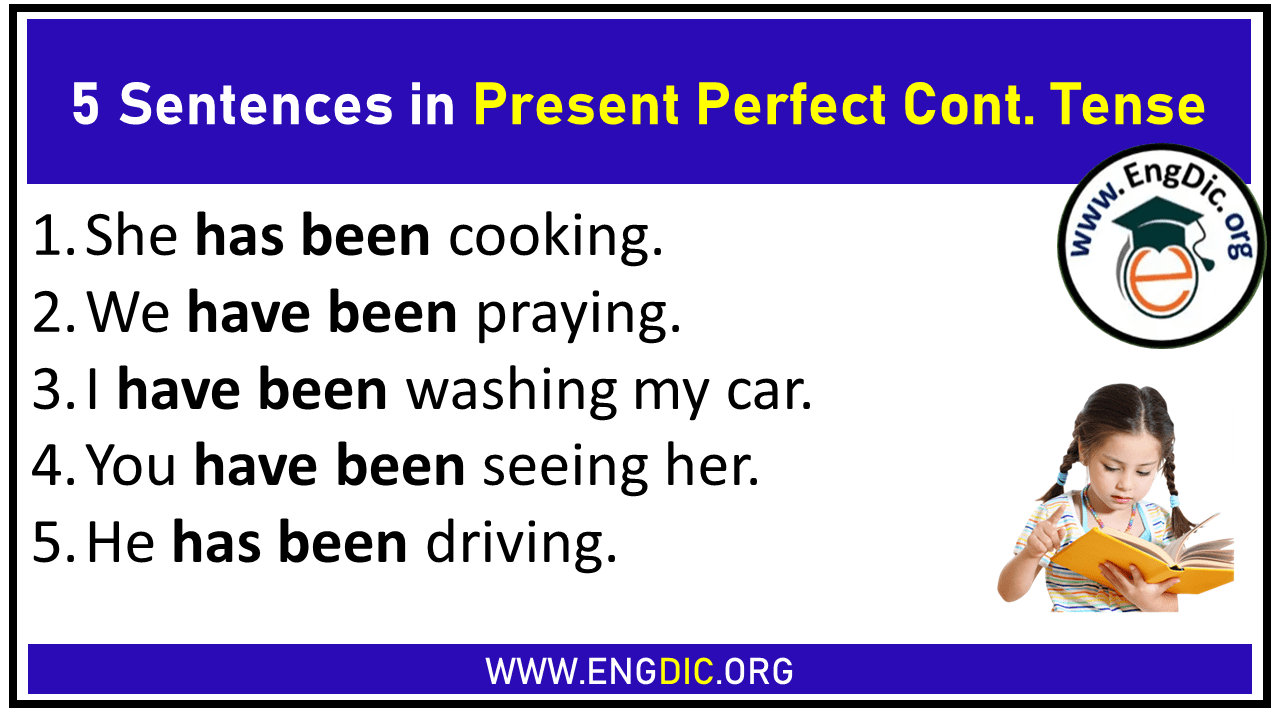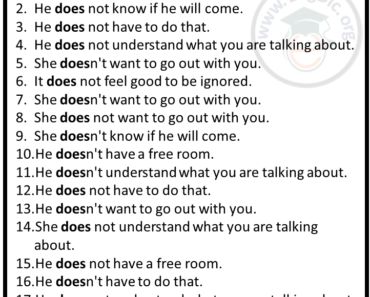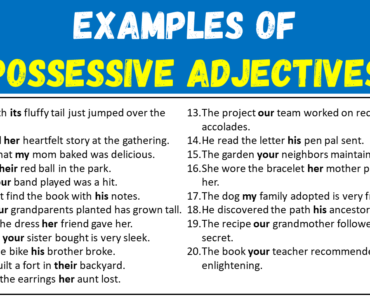5 Examples of Stative Verbs in Sentences! Verbs are an essential part of language and can be categorized into two types: stative verbs and dynamic verbs. Stative verbs express a state or condition rather than an action, and they can be challenging to recognize. To help you better understand stative verbs, this article provides five examples of them used in sentences. Each example sentence will highlight the verb being used as well as explain its meaning.

Related: 100 Examples of Stative Verbs
5 Examples of Stative Verbs
Here are five common stative verbs:
- Like
- Love
- Hate
- Know
- Believe
Stative Verb Examples in Detail
Stative verbs are used to describe a state or condition that is ongoing or static, rather than an action that is being performed. Let’s look at each of these stative verbs in detail:
1. Like
This verb is used to express a positive feeling towards someone or something. It indicates that you enjoy or have a preference for the thing or person in question. For example:
- I like pizza.
- She likes to read books.
- They like going to the movies.
2. Love
This verb is used to express a deep affection or fondness for someone or something. It indicates a strong emotional attachment or connection. For example:
- I love my family.
- He loves playing guitar.
- They love each other very much.
3. Hate
This verb is used to express a strong negative feeling towards someone or something. It indicates a strong dislike or aversion. For example:
- I hate spiders.
- She hates the cold weather.
- They hate it when people are rude to them.
4. Know
This verb is used to express familiarity or understanding of something. It indicates that you have information or knowledge about the thing in question. For example:
- I know how to play chess.
- She knows all the lyrics to that song.
- They know where the nearest store is.
5. Believe
This verb is used to express a conviction or opinion about something. It indicates that you have faith or trust in the thing in question. For example:
- I believe in aliens.
- He believes that hard work pays off.
- They believe that honesty is always the best policy.
Note that stative verbs are not typically used in progressive or continuous tenses (e.g. “I am liking pizza”), as they are not actions or events that are happening at the moment.






